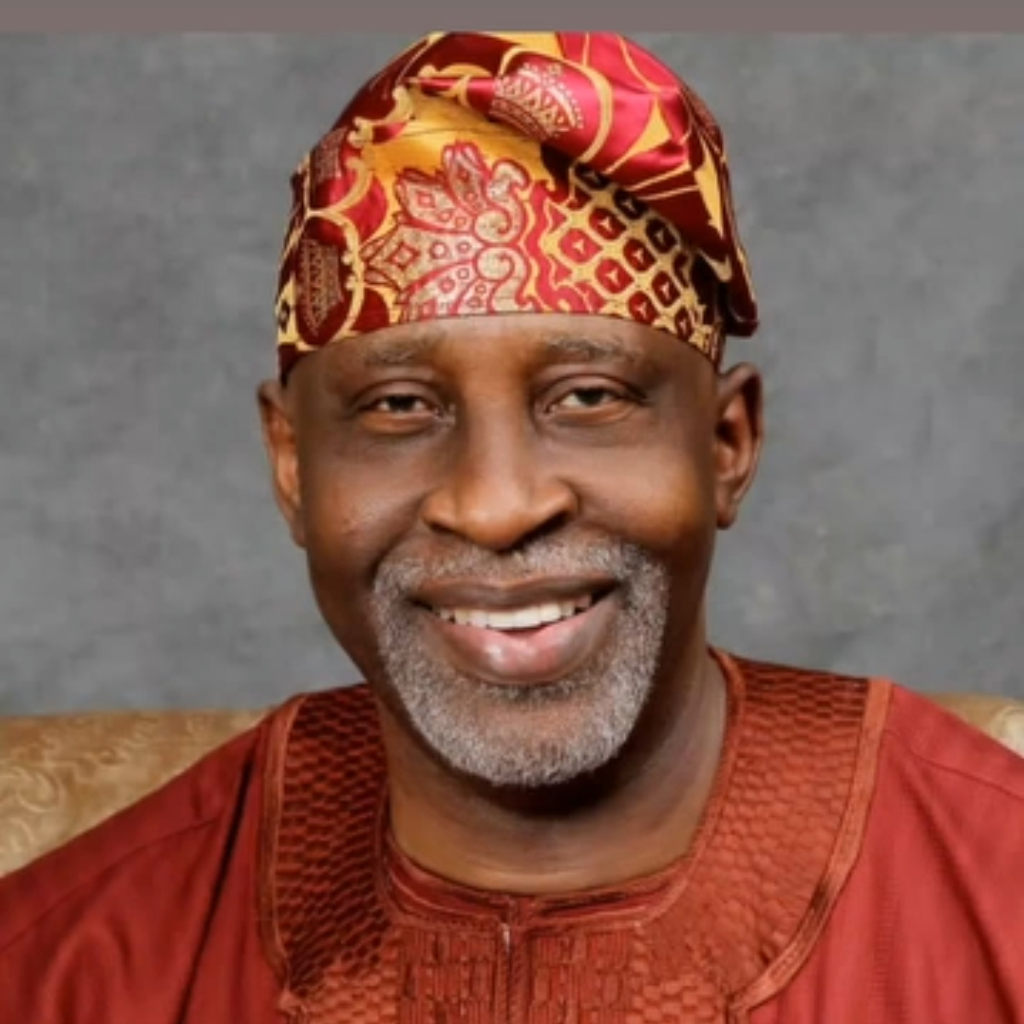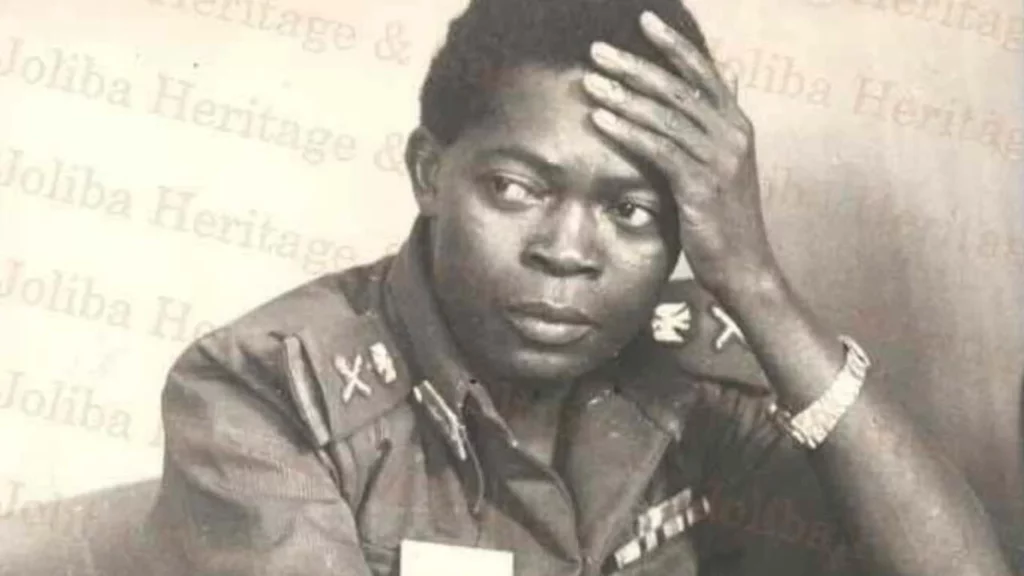Introduction
On the 2nd day of September 2023, the esteemed Governor of Oyo State, Engr. Seyi Makinde, granted his approval for the anointment of a Pastor of the Redeemed Christian Church of God, Prince Afolabi Ghandi Olaoye, as the newly ordained Soun of Ogbomosoland.
This endorsement, however, has evoked a mélange of sentiments within the populace. While a substantial segment expresses jubilation over the accession of a man of such repute to the esteemed Sounship, others harbour a deep-seated resentment towards the notion of a clergyman ascending the throne of one of Yorubaland’s ancient cities.
Of particular note is the vociferous opposition emanating from certain members of the Olaoye lineage. They vehemently contest the selection of Oba Afolabi Ghandi Olaoye, perceiving it as an imposition, as he is not regarded as an active member of their family. These dissenting voices fervently advocate for the candidacy of Prince Mohammed Kabir Olaoye, one of the twenty-four other contenders, whom they deem more suitable for the exalted position of the Ogbomoso throne.
Initially, the Governor, Engr. Seyi Makinde, adopted a recalcitrant stance, withholding his approval for Oba Afolabi Ghandi Olaoye as the Soun of Ogbomosoland. He cited ongoing legal disputes and persistent opposition as the chief reasons for his reluctance. He firmly declared that he would only grant his assent once these contentious matters were amicably resolved, and the lawsuits were withdrawn. This impasse led to a perplexing and protracted deadlock.
The primary lawsuit filed by Prince Mohammed Kabir Olaoye, a fellow contender, had already been scheduled for judgment on the 3rd of October, prompting widespread anticipation for the court’s verdict. However, the situation took an unexpected turn on the 2nd day of September 2023, just 31 days before the judgment date. On this fateful day, the Oyo state government accorded its approval to Oba Afolabi Ghandi Olaoye, designating him as the Soun-in-waiting.
Oba Afolabi Ghandi Olaoye, a Pastor affiliated with the Redeemed Christian Church of God since 1992, previously served as the Pastor of the RCCG Jesus House in Washington DC. Besides his spiritual calling, he has demonstrated astute entrepreneurial acumen, having overseen three RCCG congregations in Nigeria before relocating to Germany to shepherd another RCCG Parish in Bonn.
Oba Afolabi Ghandi Olaoye openly declared his intention to retire from active pastoral duties at the age of 60, a vow he made when he turned 55. Fate intervened when Ogbomoso tragically lost its reigning Soun, Late Oba Jimoh Oyewumi Ajagungbade III.
Undeterred by whatever the outcome would be, Oba Afolabi Ghandi Olaoye joined the race for the throne, firmly believing that if it was God’s will, no mortal force could thwart his ascension.
In one of his candid interviews, he expressed a profound understanding of the intricate responsibilities associated with Yorubaland’s monarchy, particularly in Ogbomoso, affirming his readiness to embrace all indigenous sons and daughters, irrespective of the cultural and religious obligations inherent in his new role as King.

Impacts and Giant Strides Over the Years
Born on August 23rd, 1961, Oba Ghandi possesses a profound zest for exploring diverse cultures and regions. His wanderlust has led him to traverse the landscapes of over 65 countries spanning continents that include Europe, Asia, Australia, the Caribbean, North and South America, the Pacific Islands, and Africa—a testament to his cosmopolitan experiences.
Education forms a cornerstone of Ghandi’s background, as he graduated in 1982 from the illustrious Obafemi Awolowo University in Nigeria, previously known as the University of Ife. His academic pursuits led him to attain a Bachelor of Arts with Honors in English and Literary Studies.
Furthermore, he enriched his intellectual repertoire with a Master’s degree in Industrial and Labor Relations, emphasizing Human Resource Management, awarded by Nigeria’s esteemed institution, the University of Ibadan, in 1987. It is worth noting that Oba Ghandi Orumogege III’s academic aspirations transcend these accomplishments, reflecting his enduring commitment to knowledge.

Oba Afolabi Ghandi Olaoye is an individual of profound vision, and distinguished leadership acumen, a compelling motivational speaker, and a shrewd entrepreneur. He is celebrated for his unwavering commitment to the pursuit of excellence and the manifestation of exceptional leadership qualities.
In his professional capacity, Oba Afolabi Ghandi Olaoye Established Peculiar People Management (PPM) a Management and Human Resource Consulting Company of notable repute. Furthermore, his influence over the years has not only been felt in Nigeria but also across the board as a global research and management consultant renowned for his recognition by world-class workplaces in over 56 countries across the world. His prestigious organization Peculiar People Management (PPM) offers premier business advisory services to many.
Oba Ghandi Olaoye’s dedication to community development and mentorship is evident through his role as a member of the Board of Trustees for the Strategy for Mentoring Initiative & Leadership Empowerment (S.M.I.L.E). This non-profit entity focuses on nurturing budding entrepreneurship for the betterment of society. Additionally, he lends his support to the advocacy of A Smile on Their Faces Initiative, a non-profit initiative dedicated to serving individuals with disabilities.
His global outlook is further illustrated by his association with the International Third World Leaders Association (ITWLA), chaired by the late Dr. Myles Munroe—a forum that fosters the exchange of cross-cultural ideas on a global scale. In this capacity, Oba Ghandi Olaoye represents Myles Munroe International in Nigeria, contributing to the propagation of international perspectives and insights.
In the annals of his illustrious journey, Oba Afolabi Ghandi Olaoye’s expertise found resonance on an international stage when, in January 2009, he was invited to serve as an Advisor and Council Member on the Council for New Americans by the Maryland State Governor of the United States of America, Governor Martin O’Malley. During his four-year tenure on the council, he played an instrumental role in formulating policies aimed at facilitating the integration of immigrants into the state of Maryland, a testament to his influential contributions.

Moreover, Oba Afolabi Ghandi Olaoye’s leadership extended to the realm of real estate development, as he assumed the role of Chairman for a prominent project in Floyd, Texas, USA. Under his stewardship, this ambitious endeavour saw the transformation of over 700 acres into a multifaceted campus encompassing an educational institution, a residential estate, and a grand 20,000-seat Auditorium.
Throughout his remarkable journey, Oba Afolabi Ghandi Olaoye Orumogege III, the Soun of Ogbomosoland has garnered recognition as an influential community leader. His impact has been acknowledged both in Nigeria, where former Nigerian President Olusegun Obasanjo accorded him recognition in 2001, and in the United States of America, where President Barack Obama bestowed honour upon him in 2011. His distinguished journey has been punctuated by the reception of numerous awards, including the Youth Empowerment and Positive Mentoring of Africans in the Diaspora Award, a prestigious accolade conferred by the African Business Roundtable in December 2008.
Additionally, Oba Afolabi Ghandi Olaoye extended his influence by serving on the boards of several business conglomerates and owning thriving enterprises. His diverse experiences included previous roles within the Federal Government, where he contributed his expertise in various capacities, thereby consolidating his well-connected and influential stature.
Beyond his professional and academic endeavours, Oba Ghandi Olaoye Orumogege III derives joy from personal interests such as swimming and engaging in the cerebral challenge of playing Scrabble. He is also an ordained minister, sharing spiritual guidance within his faith community. His dedication to family life is evident in his marital union to Queen Omo Ghandi Olaoye and the blessing of two daughters, Feyintola and Toluni.

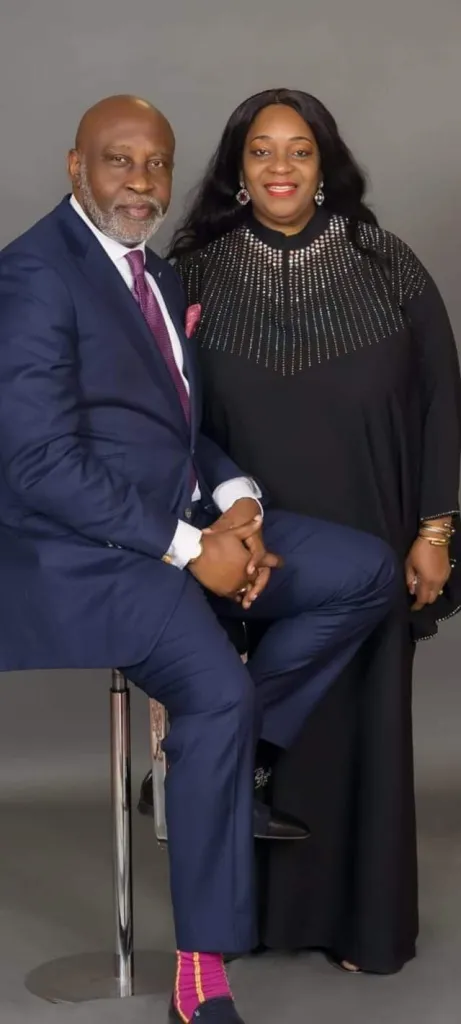

Ascension To The Throne
The emergence of Oba Afolabi Ghandi Olaoye Orumogege III as a prominent figure was not widely recognized until the commencement of the contest to fill the vacant throne of the Soun of Ogbomosoland. This event transpired following the passing of the last monarch, Oba Oladunni Oyewumi Ajagungbade III JP, CON, CFR, on December 12, 2021.
Prior to this pivotal juncture, Oba Afolabi Ghandi Olaoye had established himself in Washington DC, United States of America, where he diligently served as the pastor of the Redeemed Christian Church of God (RCCG) at Jesus House. This non-denominational, multi-racial, and multi-cultural international church attracts worshippers hailing from over twenty nations.
Oba Afolabi Ghandi Olaoye’s unforeseen entry into the contest for the Soun throne thrust him into the spotlight, owing to his lineage from the Olaoye Ruling House of the Soun Dynasty of Ogbomoso.
Initially disinterested in assuming the throne, external pressures, and what he believed to be a divine mandate eventually compelled him to partake in the rigorous selection process. After contending with twenty-four other contenders, he secured election by the kingmakers, and his nomination was subsequently submitted to the Oyo state government for ratification.
Predictably, opposition arose, originating from his rivals for the throne, family heads, and other dissenting parties. This opposition was grounded in various concerns, and petitions were forwarded to Governor Engr. Seyi Makinde. Subsequently, some discontented individuals initiated legal proceedings challenging Oba Afolabi Ghandi Olaoye’s nomination and petitioning the court to invalidate the process and instigate a fresh one.
Governor Makinde withheld approval, citing the ongoing court cases and persisting opposition. He emphasized that his assent would be contingent upon the amicable resolution of these issues and the removal of the matter from the judicial system. This stance led to a protracted impasse.
However, a transformative turn of events occurred on Saturday, September 2, 2023—just 31 days prior to the scheduled court judgment date of October 3—when the Oyo state government granted approval for Oba Afolabi Ghandi Olaoye to assume the mantle of the Soun-designate, effectively concluding the stalemate.

Coronation and Installation as Soun
The kingmakers in Ogbomoso, led by the Areago of Ogbomoso, High Chief Sobalaje Otolorin, on 8th September 2023, installed Olaoye as the new Soun of Ogbomoso at Abata.
Governor Seyi Makinde of Oyo State officially installed Oba Ghandi Olaoye as the 21st Soun of Ogbomoso during a ceremony at Ogbomoso Township Stadium on 19th of December 2023.
The coronation was attended by distinguished personalities nationwide. Gov Makinde emphasized unity and urged Olaoye to prioritize development initiatives. He pledged to revive the State Council of Traditional Rulers and rebuild the House of Chiefs for conducive meetings.
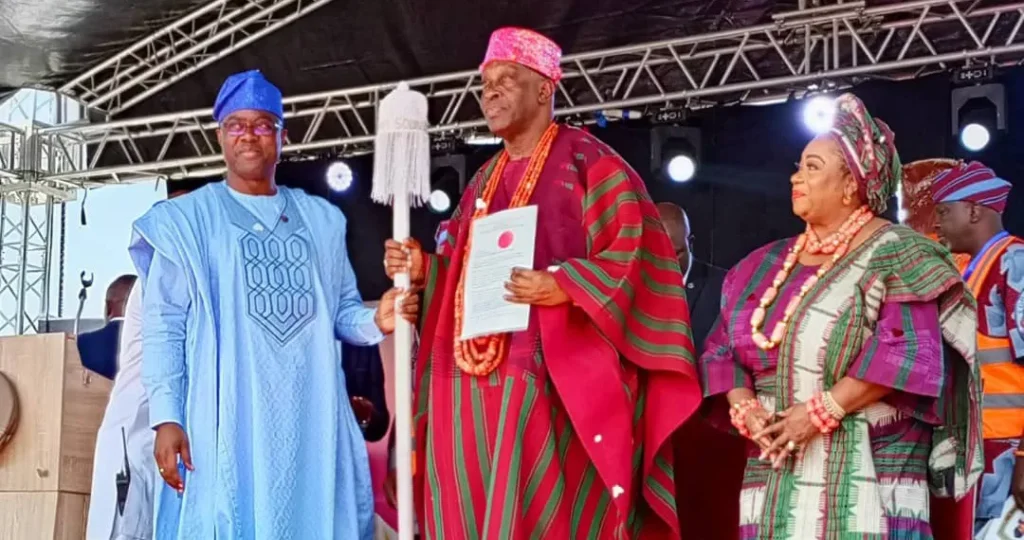
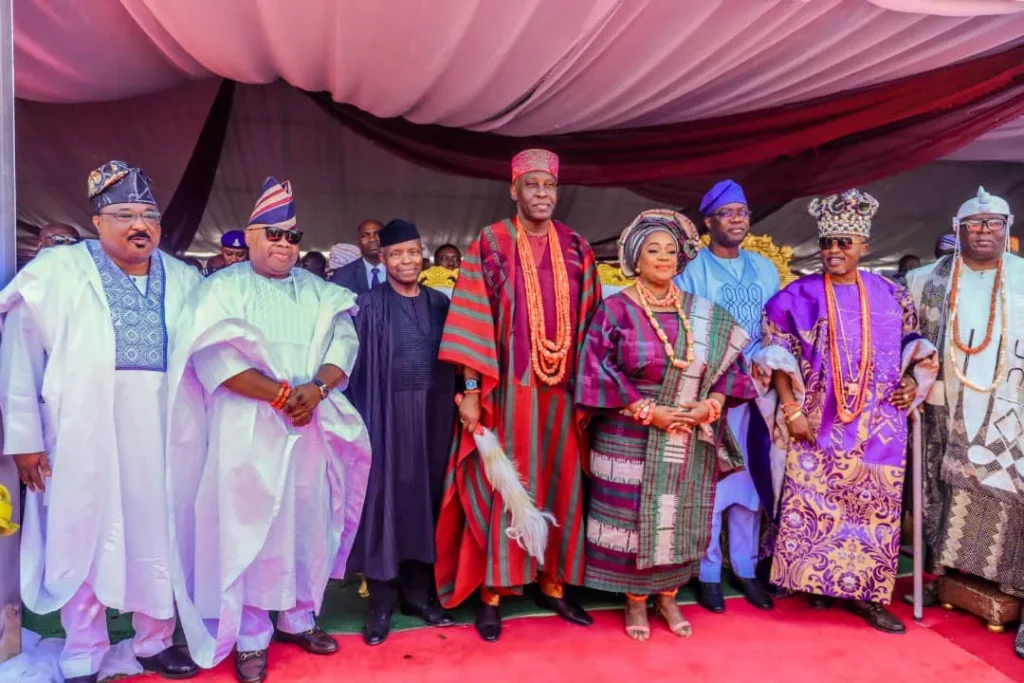
Oba Olaoye, in his address, called for collective efforts to unlock Ogbomoso’s potential, unveiling a 25-year development plan. Transitioning from pastor to monarch, he committed to serving all residents impartially, transcending religious and cultural boundaries.
Addressing the people of Ogbomoso, Oba Olaoye emphasized inclusivity and urged support for collective progress. He called on former contenders to join hands for Ogbomoso’s development, emphasizing the significance of unity and shared destiny.
The event attracted a lot of dignitaries to Ogbomoso, including former Vice President Yemi Osibajo and Governor Ademola Adeleke, symbolizing the significance of the occasion. Representing the federal government, Olusekun Adekunle attended on behalf of the Secretary to the Government of the Federation.
The Ancestral Lineage of Oba Afolabi Ghandi Olaoye Orumogege III
To trace the lineage of Oba Afolabi Ghandi Olaoye, we embark on a historical odyssey, commencing from his father and proceeding chronologically to his earliest known progenitor, Soun Ogundiran Ogunlola (Aisa Agbe).
Prince Samuel Oladunni Oyatoro Olaoye
The Father of Oba Ghandi Olaoye Orumogege III answers to the name of Prince Samuel Oladunni Oyatoro Olaoye. Simply referred to as Prince Oladunni, he was a man of substantial means who had the privilege of collaborating with the British colonialists, who at the time held sway over Nigeria. His sphere of influence encompassed the erstwhile Public Works Department (nowadays known as the Ministry of Works), and he discharged his duties in myriad locales throughout the Western Region of Nigeria. His ascent within the department’s ranks was nothing short of meteoric. He engaged in close discourse with numerous eminent personages within the country, a significant portion of whom counted him among their confidants.
Prince Oladunni, occupying a position of affluence within the elite stratum, emerged as a prominent member of the most influential socio-cultural organization in Ogbomoso during that era – the Ogbomoso Progressives Union (OPU), alongside illustrious compatriots such as Chief Samuel Ladoke Akintola (who would later become the second Premier of Western Nigeria), Chief J.K. Atanda, Professor N.D. Oyerinde, Rev’d Aisa Ige, and others. It was from this very organization that the formidable Ogbomoso Parapo later emerged.
In the annals of history, Prince Oladunni entered the fray for the throne’s stewardship in the year 1940, as it was the Olaoye family’s turn to anoint the Soun, following the demise of Baale Afolabi Oyewumi Ajagungbade II (the progenitor of the immediate past Soun). However, Prince Oladunni encountered defeat in this contest, thwarted by his uncles, based on the prevailing law at the time stipulating that “only direct descendants of a former Soun were eligible to ascend to the throne.” He was a direct grandson of the previous incumbent.
Prince Oladunni was a paragon of erudition, proficient in the literary arts; his discourse seamlessly interwove lines from William Shakespeare, Oliver Cromwell, and Yoruba proverbs, endowing him with the mantle of a consummate orator. Towering in stature, and resolute in demeanour, he concluded his earthly sojourn in 2004 at the ripe age of 93, having graced this world with his presence on October 9, 1911.
Prince Emmanuel Oladayo Olaoye
Prince Emmanuel Oladayo Olaoye was the progeny of Oba Olaoye Orumogege, who reigned over Ogbomoso during the latter part of the nineteenth century, up until January 1901. Prince Oladayo Olaoye, the father of Prince Oladunni, shared an early existence in Lagos, where he fostered associations with the white intelligentsia.
Tragically, his demise precipitated the arrival of Prince Oladunni, at the behest of his Caucasian superiors. Prince Oyekola was designated as the heir to the throne in 1940, destined to succeed Oba Afolabi Oyewumi. Elaborate preparations for his coronation were underway when, just days before the ceremony, he succumbed, allegedly to a fit of coughing.
Oblivious to the prevailing tradition, the British colonial authorities appointed Oyekola’s son, Amoo Oyetunde, as a sympathetic gesture. Nevertheless, this decision failed to resonate with a segment of the populace, who contended that the late Oyekola had surviving siblings deserving of consideration. With the assistance of the intellectual elite, a petition was lodged with the government, culminating in a legal battle that concluded in 1944 with a victory at the Judicial Committee of the Privy Council in London, United Kingdom.
Consequently, Amao Oyetunde Olaoye was deposed after a four-year reign, as per the court’s ruling, and Prince Oke Olaonipekun Olaoye, the brother of his father, ascended the throne in his stead as the Soun of Ogbomosoland, in April 1944. His reign endured until March 29, 1952, when he departed this earthly realm.
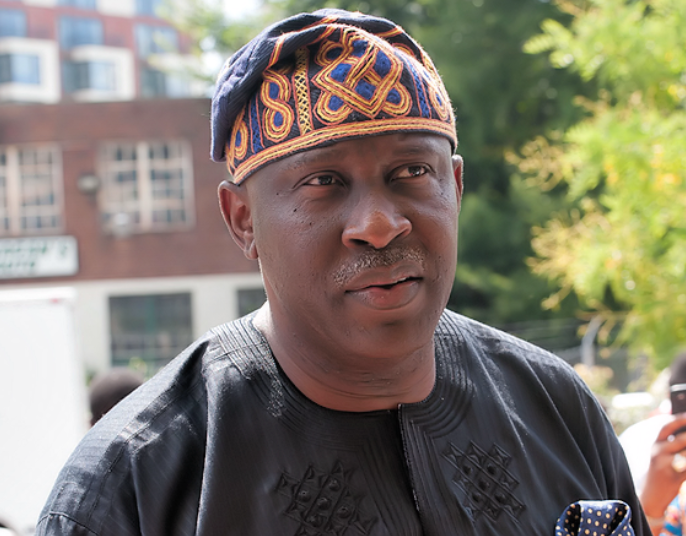
Baale Atanda Olaoye Orumogege I
Olaoye Orumogege, the progenitor of Oyekola, Oke Olaonipekun, and Oladayo (the father of Prince Oladunni), traced his lineage back to Bayewuwon, also known as Kelebe n’ija. Olaoye Orumogege succeeded Gbagun Ondugbe Ajagungabade I in 1871, presiding over the throne until 1901.
He stood as a formidable Oba and a valiant warrior. His reign bore witness to numerous conflicts, both internal and external, as he waged wars against marauders, arsonists, and murderers. His spirit of reciprocity endeared him to many. The era of his reign corresponded with the influx of Europeans into Yorubaland.
In point of fact, he was the monarch who extended a hospitable welcome to Governor Carter during the latter’s journey to Ilorin in 1893. His reign marked the inception of a new era, a wave of modernization that swept through the land.
The institution known today as the Nigerian Baptist Theological Seminary, Ogbomoso, found its genesis during his reign in 1898. Notably, he played host to Dr. George Green, the missionary responsible for founding the Baptist Hospital, which would subsequently evolve into the Bowen University Teaching Hospital.
Baale Jayeola Arolofin Bayewuwon
Bayewuwon Kelebe n’ija, as his appellation suggests, embodied the spirit of a formidable warrior, akin to his forebears – agile in battle. He was the third scion of Kumoyede to ascend to the Soun throne.
His reign was characterized by unceasing conflict, particularly with the Fulani Ilorin, who launched no less than 17 assaults on Ogbomoso during his rule. Remarkably, on all 17 occasions, the invaders were repelled! Bayewuwon rallied numerous warriors to fortify the town, a strategic response to the Fulani’s ambitions of subjugating the entirety of Yorubaland. Through sagacity, tolerance, strategy, patience, and unyielding bravery exhibited by Ogbomoso’s leaders during this precarious epoch, the imperialists’ advances were thwarted.
So as to fortify Ogbomoso and build a reliable spiritual defence for his town, Ogbomoso, Baale Jayeola Arolafin asked the most outstanding Ifa Priests and magicians of that era to create a kind of “monumental shrine” for the fortification of Ogbomoso from invaders now known as Ogun o jalu. It was said that of all the herbalists, Ajayi Inajokun an Offa man emerged as the greatest.
Bayewuwon was the father of Laoye, who in turn fathered Prince Oladayo, the progenitor of Oba Afolabi Ghandi Olaoye Orumogege III, the Soun of Ogbomosoland. His reign bore witness to pivotal wars, including the Osogbo conflict, which dealt a decisive blow to Ilorin’s audacious bid to conquer Yorubaland. Ogbomoso committed substantial resources, both in terms of manpower and materials, to this conflict.
It was a devious scheme aimed at outmanoeuvring the town. Ilorin initiated an attack on Osogbo, with the hope of enticing Ogbomoso’s warriors to its defence, leaving Ogbomoso vulnerable to an assault. Ogbomoso, astutely comprehending the stratagem, dispatched only a detachment to relieve Osogbo, while soliciting aid from Ibadan, a more distant ally.
Intriguingly, even the initial two battalions dispatched by Ibadan failed to compel a retreat by the Ilorin forces. Consequently, the brave generals of the Ibadan army, including Balogun Oderinlo (the Commander-in-Chief of the Ibadan army), had to personally intervene, marching upon Osogbo to engage the marauding invaders. This victory held immense significance in thwarting the imperialistic ambitions of the Fulani.
The Asofeyeje war transpired during Bayewuwon’s reign, characterized by a siege on Ogbomoso by the Ilorin and a contingent of Ibadan forces. The Baale Bayewuwon, in collaboration with the Ogbomoso war council, laboured relentlessly to devise a stratagem to break free from the asphyxiating blockade.
The war’s nomenclature, Asofeyeje war, stemmed from the circumstance wherein Ogbomoso’s denizens found themselves ensnared within the protective wall, encircled and unable to access their farmlands.
Consequently, many fruit-bearing trees remained unharvested, providing a feast for birds, hence the name Aso-fun-eye-je (fruiting for birds to feast upon)! Subsequently, following a war council deliberation, the war generals executed a swift and unexpected assault on the adversary, routing them in the process.
Leaders such as Areago Ori Oro, Abese Obiri Yeku, and Kuola spearheaded one division through the Apake front, while Ogunrunmbi and Bammeke struck via the Adunin route. Simultaneously, Baale Kelebe and Lalude descended upon the invaders along the Popo path, while Oluya Agbandugu and Lagbedu launched an onslaught via the Paku trail.
Their movements unfolded in synchronized fashion, characterized by stealth and surprise, catching the enemy unawares. Ogbomoso’s warriors descended upon the foe at various fronts with fervour and ferocity, inducing pandemonium within the enemy’s ranks. The Ilorins fled in disarray, with many perishing in the chaotic retreat. This episode showcased the indomitable spirit of Bayewuwon Kelebe n’ija. He passed away in 1901.
Baale Lasemi Kumoyede
Kumoyede stands as yet another illustrious monarch in Ogbomoso’s annals. He served as the direct progenitor of the five recognized ruling houses in present-day Ogbomoso. Kumoye’s father, Jogioro, was a renowned warrior.
Kumoye ascended to the throne in lieu of his elder brother, Oluopo, who, according to historical accounts in ‘Iwe Itan Ogbomoso’ by Prof. N.D. Oyerinde, nonchalantly declined the throne, instead urging his younger brother, Kumoyede, to assume the mantle of leadership.
Kumoyede begot five sons, each of whom ascended to the throne in succession. These scions were Toyeje Akanni Alebiosu, Aremu Oluwusi, Bayewuwon Kelebe, Idowu Bolanta, and Odunaro Apaebu.
Importantly, these five offspring hailed from different maternal lineages. Ologolo and Olukan subsequently succeeded to the throne following Kumoye’s reign, paving the way for his sons, commencing with Toyeje, the Are Ona Kakanfo, to assume leadership.
Kumoyede is the father of Bayewuwon, who in turn begot Olaoye Orumogege I, the father of Oladayo, the progenitor of Oladunni, who, in the course of time, sired Afolabi Ghandi.
Baale Jogioro
In the annals of Ogbomoso, the epithet associated with Souns of Ogbomoso today is “Omo Jogioro” (Offspring of Jogioro). Jogioro, a scion of Soun Ogunlola, a distinguished progenitor of the township; burgeoned in fame, strength, and valour.
He is the forefather of Kumoyede. His exploits conferred copious esteem, distinction, and reverence upon the Soun throne and, by extension, upon Ogbomoso itself. He engaged in numerous conflicts, and among his contemporaries were Langbin, reputed to be a former Kakanfo, and Kakanfo Oyabi, who vanquished the infamous Basorun Gaa.
Baale Jogioro occupied the position of the fifth Baale of Ogbomoso ruling after his three elder brothers, Baale Lakale, Baale Kekere Esuo and Baale Eiye Agannaganna. Consequently, Baale Jogioro stands as the patriarch of the ruling lineages of Ogbomoso. His reign spanned the midpoint to the latter part of the 18th century.
Soun Ogunlola
Soun Ogunlola, the patriarch of the Soun dynasty and a venerable forbearer of Oba Afolabi Ghandi Olaoye Orumogege III, the Soun of Ogbomosoland is of Ibariba descent and is the foundational figure in the saga of Ogbomoso. Soun Ogundiran Ogunlola emerged as one of the initial settlers in the region that would ultimately become Ogbomoso.
The narrative of Ogunlola enjoys widespread familiarity, thus obviating the need for its reiteration at this juncture. Soun Ogunlola Ogundiran fathered Lakale, Kekere Esuo, Eiye Agannaganna and Jogioro
Unfortunately, he was the last known ancestor of Oba Afolabi Ghandi OlaoyeOrumogege III, the Soun of Ogbomosoland and of course of the Soun dynasty. The Baribas’ native country is in today’s northeast Benin Republic and west-central Nigeria. They founded the Borgu kingdom.
About 30% of the Bariba people are found in Nigeria today in western Kwara and western Niger state while the larger 70% are domiciled in Benin, where they constitute 9.2% of Benin Republic’s population, and the fourth largest ethnic group, with their capital city being Nikki.
Their total population in Nigeria and Benin is about 1 million. Ogunlola is said to have arrived in the area now known as Oja’gbo in what became Ogbomoso in about 1650, on a hunting expedition. He permanently settled there to begin a new Yorubanized history.
In retrospect, we find the lineage of an Ibariba man known as Gborungunle, the progenitor of a lineage that traces its roots through Ogunola, thence to Jogioro, further to Kumoyede, continuing with Bayewuwon, followed by Olaoye, succeeding to Oladayo, and finally culminating in the birth of Oladunni, who in turn gave life to Oba Afolabi Ghandi Orumogege III, the Soun of Ogbomosoland. This ancestral tapestry weaves a tale of heritage, a continuum of life’s journey, each name in the line a testament to the perpetuity of existence.
Ogunlola – Jogioro – Kumoye – Bayewuwon – Olaoye – Oladayo – Oladunni – Oba Afolabi Ghandi Orumogege III, the Soun of Ogbomosoland
Reference
- Ogbomoso In The Early Times, Modern Era And In Today’s Contemporary World – Written By Chief Oyebisi Okewuyi (JP)
- Ogbomoso, The Journey So Far – Written By Ayo Adelowo
- N.D Oyerinde, Ìwé Ìtàn Ògbómòsó [A History of Ogbomoso] – Written By Professor ND Oyerinde
- Femi Ogunlana, Who are the ancestors of Soun-designate, Crown Prince Afolabi Ghandi Olaoye?, Ogbomoso Insight
- The Intimidating Credentials of Ghandi Olaoye, National Insight
The BEST way to support us is by providing funding to enable us continue this good work:
Bank: Guarantee Trust Bank (GTBank)
Account Name: Johnson Okunade
Naira Account: 0802091793
Dollar Account: 0802091803
Pounds Account: 0802091810
Euro Account: 0802091827
Business Email — hello@johnsonokunade.com
